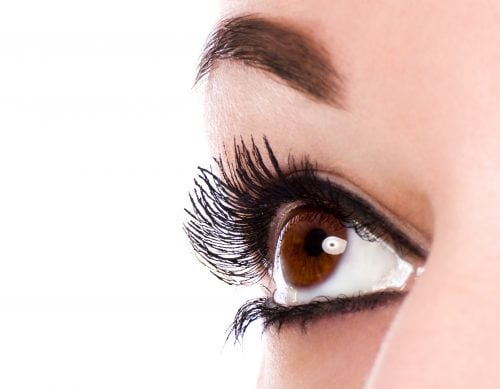
None of us want to lose our eyesight. We investigate whether a healthy diet can help.
Vitamin A deficiency is the leading cause of blindness in developing countries. In wealthier countries we don’t have that problem, but good nutrition can improve our chances of better eyesight in later life.
Many nutrition messages tell you to eat a certain way so you’ll be more likely to stay healthy as you age. But until you are aging yourself or have an aging relative facing serious (hereditary) health issues; we don’t often pay attention. But we should.
Age-related macular degeneration (AMD) is the biggest cause of blindness in wealthy countries, but we can also fall prey to other common eye diseases such as glaucoma and cataracts.
When you think about what the impact of losing your sight can have, you start to appreciate that following a bit of nutrition advice when you’re younger might not be such a bad idea.
Food for your eyes
A number of recent studies on nutrients and eye health have indicated that diet can benefit your long-term eye health.
Load up on foods rich in vitamins, minerals and antioxidants; go for foods with omega-3 fats, especially the long-chain fats found in oily fish; don’t overdo the vegetable oils (including margarine); and limit your intake of saturated fats.
The easiest way to start eating for eye health is to get your 5+ a day of fruits and vegetables; the more colourful the better.
When talking eye health, there is increasing interest in the antioxidants lutein (pronounced loo-teen) and zeaxanthin (pronounced zee-a-zan-thin) which are both found in the macula.
Lutein and zeaxanthin are found together in many foods. Dark green leafy vegetables are the main source – spinach is a particularly good source – but they are also found in broccoli, green beans, silver beet, Brussels sprouts, oranges, capsicum, corn, peas, persimmons and tangerines.
Studies have found that people eating diets high in lutein and zeaxanthin have a significantly lower risk of developing AMD and are less likely to develop cataracts.
In the US, where most people don’t eat their 5+ fruit and vegetables a day, it’s been found that they only get around 2mg of lutein and zeaxanthin, whereas the studies suggest 6mg a day is needed to reduce risk of eye disease.
Egg yolks are also a good source of these antioxidants. Remember, the current advice is that for most people eggs are part of a healthy diet, and 5-6 eggs a week is fine as long as you’re eating a diet low in saturated fat. For people with high cholesterol it’s advised that you limit yourself to three eggs a week.
And I’ve saved the really good news until last. Yes, it is true: red wine, in moderation, has been shown to be good for eye health in that it reduces the risk of developing cataracts.
Keep your eyes healthy by following these tips
- Get your eyes checked at least every two years. Most eye conditions that can lead to blindness develop slowly and often people only notice they have lost their vision when it is already late. Earlier diagnosis means earlier treatment and more vision can be saved.
- Protect your eyes from the damaging UV light. Over-exposure to UV light increases the risk of developing a number of eye conditions including AMD, cataracts, pterygium and even cancer. Ideally when outside wear a hat and wraparound-style sunglasses that are 100% UV light protective.
- Exercise regularly and monitor your blood pressure. Blood vessels in the retina are affected when a person has high blood pressure, which can lead to loss of vision.
- Eat plenty of fruits and vegetables. They contain lots of antioxidants that help protect the retina.
- If you have diabetes, monitor your blood glucose level. Diabetic retinopathy (a complication of diabetes) is a leading cause of blindness.
- Don’t smoke. If you do smoke – quit. The chemicals in cigarettes can build up in your body and damage your retina.
For more information:
The New Zealand Association of Optometrists
Optometrists Association Australia
American Optometric Association
www.healthyfood.com











